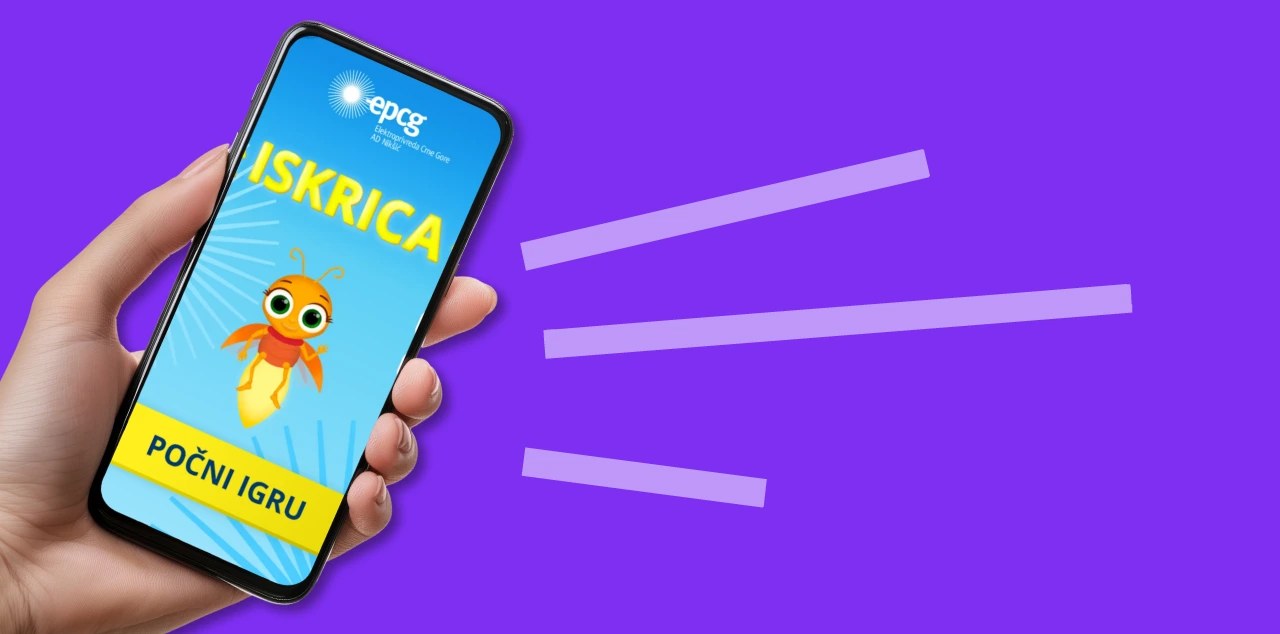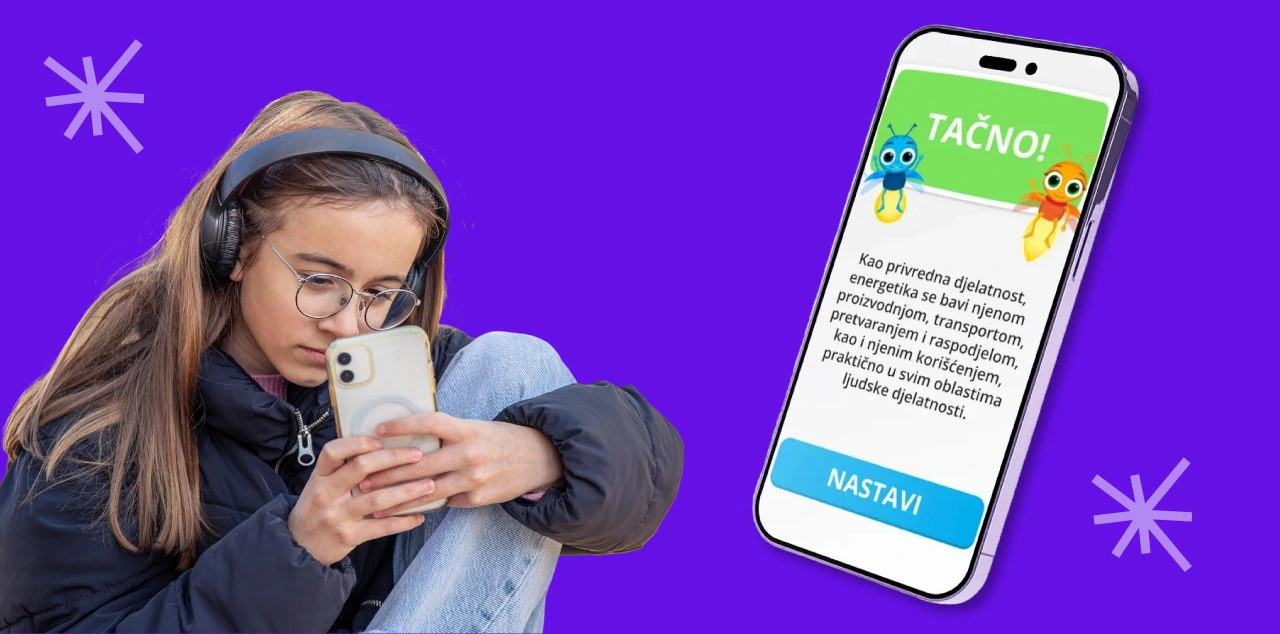Iskrica: A Spark That Lit Up Classrooms Across Montenegro
.webp)
.webp)
How do you get teenagers to care about things like kilowatts, voltage, or how not to stick a fork in a socket? You don’t lecture them - you build a game.
That was the logic behind Iskrica, the first educational mobile quiz developed by EPCG for primary and secondary school students across Montenegro. Aimed at young people learning physics, the game combined safety tips, science facts, and green energy habits into a simple but engaging mobile experience.
And it worked - not just as a learning tool, but as a way to reach kids in every corner of the country, without ever organizing a single school visit.

Unlike traditional campaigns that rely on school presentations or workshops, Iskrica spread entirely through online channels, word of mouth, and a little digital magic.
Despite having zero direct contact with schools, the game reached over 100 schools in 21 municipalities, showing how inclusive and far-reaching educational technology can be when it’s designed with real users in mind. Students from urban centres and rural areas played the same game, answered the same questions, and had the same shot at rewards - no internet wizardry required.
It wasn’t just a quiz. It was proof that the right digital tool can turn national infrastructure (like EPCG) into a familiar, friendly face in a teenager’s phone.
Each session featured 15 quickfire questions delivered through mini-games: multiple choice, yes/no rounds, missing-letter puzzles, and balloon-popping word clues.
Players learned what electricity is, where it comes from, how to behave safely around plugs, cables and appliances, and how simple everyday actions - like turning off lights or unplugging devices - can help save energy and protect the planet.
The game’s tone was cheerful and engaging, with animated prompts and playful visuals designed to keep teens focused without feeling like they were back in class. And yes, the buzzing bee mascot definitely helped.

The numbers speak for themselves: Iskrica didn’t just reach students -it energized them. From thousands of completed quizzes to hundreds of schools engaged, the game became a true example of how smart digital tools can drive wide-scale educational impact.
The campaign showed that you don’t need in-person promotion to achieve national impact. With no direct school visits, Iskrica still landed in classrooms from Pljevlja to Ulcinj - and in many cases, students discovered it before their teachers did. That’s what happens when the right topic meets the right tech.
